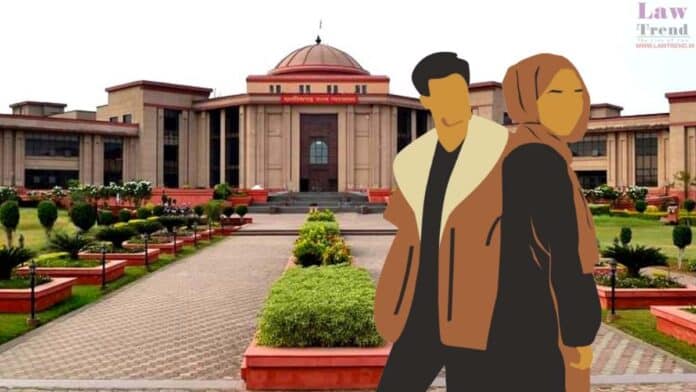The Chhattisgarh High Court has observed that society needs to change the dialogue at home to eradicate discrimination based on skin colour and cited a study to bemoan that dark-skinned women are likely to be portrayed as under-confident and insecure.
Incentive cannot be given to a husband to promote society’s preference for light skin over dark, ruled a Division Bench last month while dismissing an appeal filed by a man, a resident of Balodabazar district, seeking divorce from his wife.
The respondent wife asserted in the HC that her husband sought to abandon her due to her dark skin tone.
The appeal was filed by the man against an order of a family court judge in Balodabazar on July 30, 2022, dismissing his application for divorce.
The bench, comprising Justices Goutam Bhaduri and Deepak Kumar Tiwari, said, “Evaluating the evidence, facts on the preponderance of probability and the allegations of husband and counter- allegations of wife, the reasons assigned by the wife appears to be more logical. The wife without hesitation has come up with a plea that the husband wanted to desert her on the ground that she has black colour skin.”
In the judgement, the HC referred to a study on skin-colour preference to decide the suitability of a person as a potential partner.
“In a study in this subject indicates there appears to be a skin-colour preference with regard to making decisions about suitability of an individual as a potential partner. The study further indicates that attractiveness and competency is controlled in a manner to minimize their influence, which attributes to the skin-colour variation. Dark skinned were rated lower than their highly competent light-skinned counterparts and the majority of skin-lightening cosmetics target women. They are likely to portray a dark-skinned woman as an under-confident and insecure person who is unable to secure success in life until someone suggests the use of a fairness cream,” the HC said.
The judges went on to note that the choice of skin colour cannot be incentivised.
“Entire society of the human race needs to change the dialogue at home, which may not promote the fairness preference of skin. Therefore, the incentive cannot be given to a husband to promote such a mind set of the society for preference of light skin over dark,” they added.
The HC noted no ground of cruelty has been made out by the husband to get the decree of divorce.
According to case details, the couple got married in 2005 and resided in their home in the village of Dharashiv. Later, they moved to Hyderabad for six months to earn a livelihood before returning to the village.
The husband said his wife subsequently went to her paternal home and refused to return, citing financial difficulties.
The husband, in the appeal, narrated certain incidents and claimed quarrels were picked up by the wife, who at one point, threatened to commit suicide.
Also Read
A social meeting was convened to address their matrimonial issues after which the wife returned to her parental home. She did not go back to her husband’s home after April 14, 2017, prompting him to file an application for divorce.
In reply, the wife contended she faced torture and abuse, and driven out of the matrimonial home, prompting her to stay at her parental village since April 14, 2017. The woman further alleged she was abused over her skin colour and subjected to physical assault.
She claimed her husband wanted to remarry and therefore filed for divorce.
The counsel for the husband pleaded in the court that the wife, without any reasons, abandoned his client and evidence on record would show all efforts at reconciliation failed.
“After cumulative reading of the evidence, we are of the view that no ground of cruelty or desertion has been made out by the husband to get the decree of divorce which are under the Hindu Marriage Act, 1955,” the HC said and dismissed his appeal.




